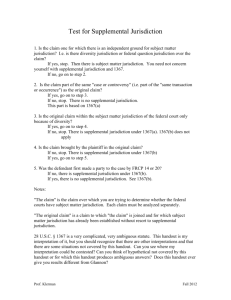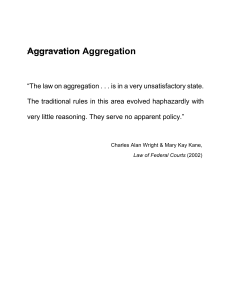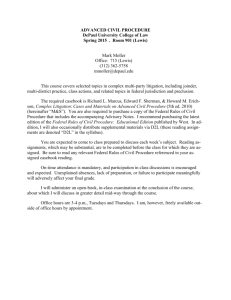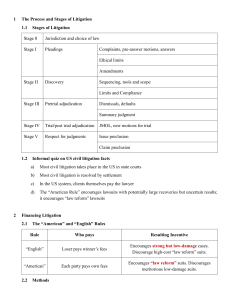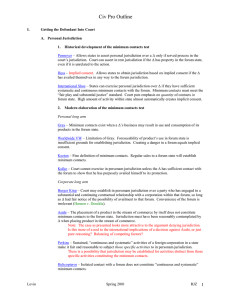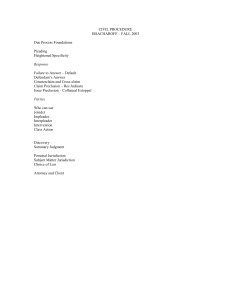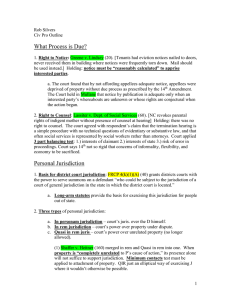civ-pro-exam-pointers
advertisement
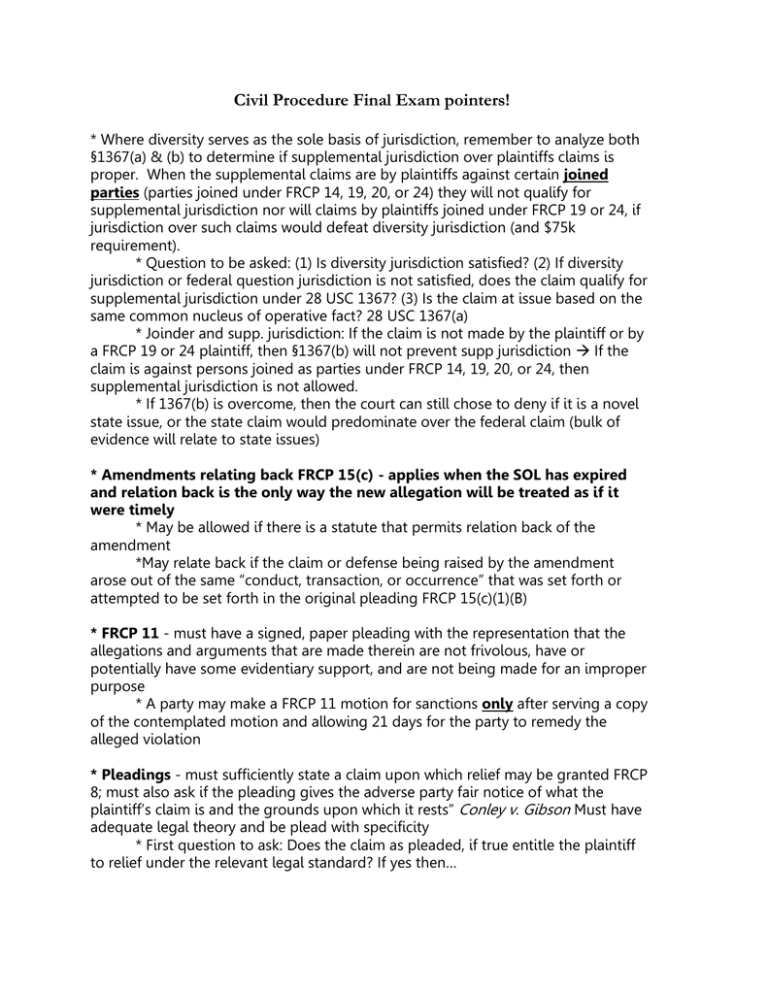
Civil Procedure Final Exam pointers! * Where diversity serves as the sole basis of jurisdiction, remember to analyze both §1367(a) & (b) to determine if supplemental jurisdiction over plaintiffs claims is proper. When the supplemental claims are by plaintiffs against certain joined parties (parties joined under FRCP 14, 19, 20, or 24) they will not qualify for supplemental jurisdiction nor will claims by plaintiffs joined under FRCP 19 or 24, if jurisdiction over such claims would defeat diversity jurisdiction (and $75k requirement). * Question to be asked: (1) Is diversity jurisdiction satisfied? (2) If diversity jurisdiction or federal question jurisdiction is not satisfied, does the claim qualify for supplemental jurisdiction under 28 USC 1367? (3) Is the claim at issue based on the same common nucleus of operative fact? 28 USC 1367(a) * Joinder and supp. jurisdiction: If the claim is not made by the plaintiff or by a FRCP 19 or 24 plaintiff, then §1367(b) will not prevent supp jurisdiction If the claim is against persons joined as parties under FRCP 14, 19, 20, or 24, then supplemental jurisdiction is not allowed. * If 1367(b) is overcome, then the court can still chose to deny if it is a novel state issue, or the state claim would predominate over the federal claim (bulk of evidence will relate to state issues) * Amendments relating back FRCP 15(c) - applies when the SOL has expired and relation back is the only way the new allegation will be treated as if it were timely * May be allowed if there is a statute that permits relation back of the amendment *May relate back if the claim or defense being raised by the amendment arose out of the same “conduct, transaction, or occurrence” that was set forth or attempted to be set forth in the original pleading FRCP 15(c)(1)(B) * FRCP 11 - must have a signed, paper pleading with the representation that the allegations and arguments that are made therein are not frivolous, have or potentially have some evidentiary support, and are not being made for an improper purpose * A party may make a FRCP 11 motion for sanctions only after serving a copy of the contemplated motion and allowing 21 days for the party to remedy the alleged violation * Pleadings - must sufficiently state a claim upon which relief may be granted FRCP 8; must also ask if the pleading gives the adverse party fair notice of what the plaintiff’s claim is and the grounds upon which it rests” Conley v. Gibson Must have adequate legal theory and be plead with specificity * First question to ask: Does the claim as pleaded, if true entitle the plaintiff to relief under the relevant legal standard? If yes then… * Are sufficient facts alleged to suggest liability or is the complaint characterized by conclusory labels? Bell Atlantic Corp. v Twombly * In an answer, defendant must specifically admit or deny an allegation; must also clearly state any affirmative defenses, otherwise certain ones may be waived if not initially plead (FRCP 12 (b) 1-5)) Jones v. Block


